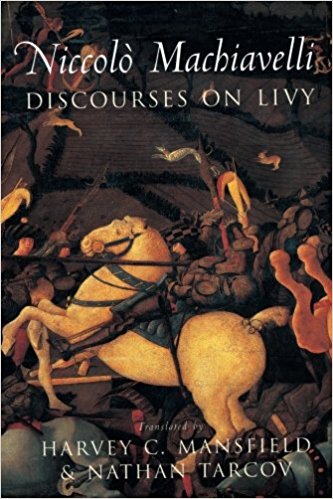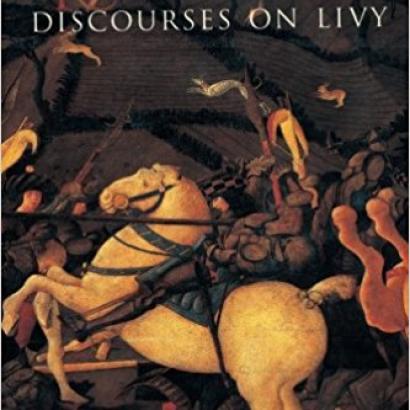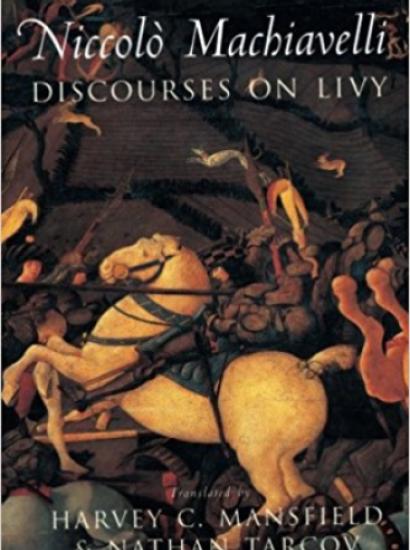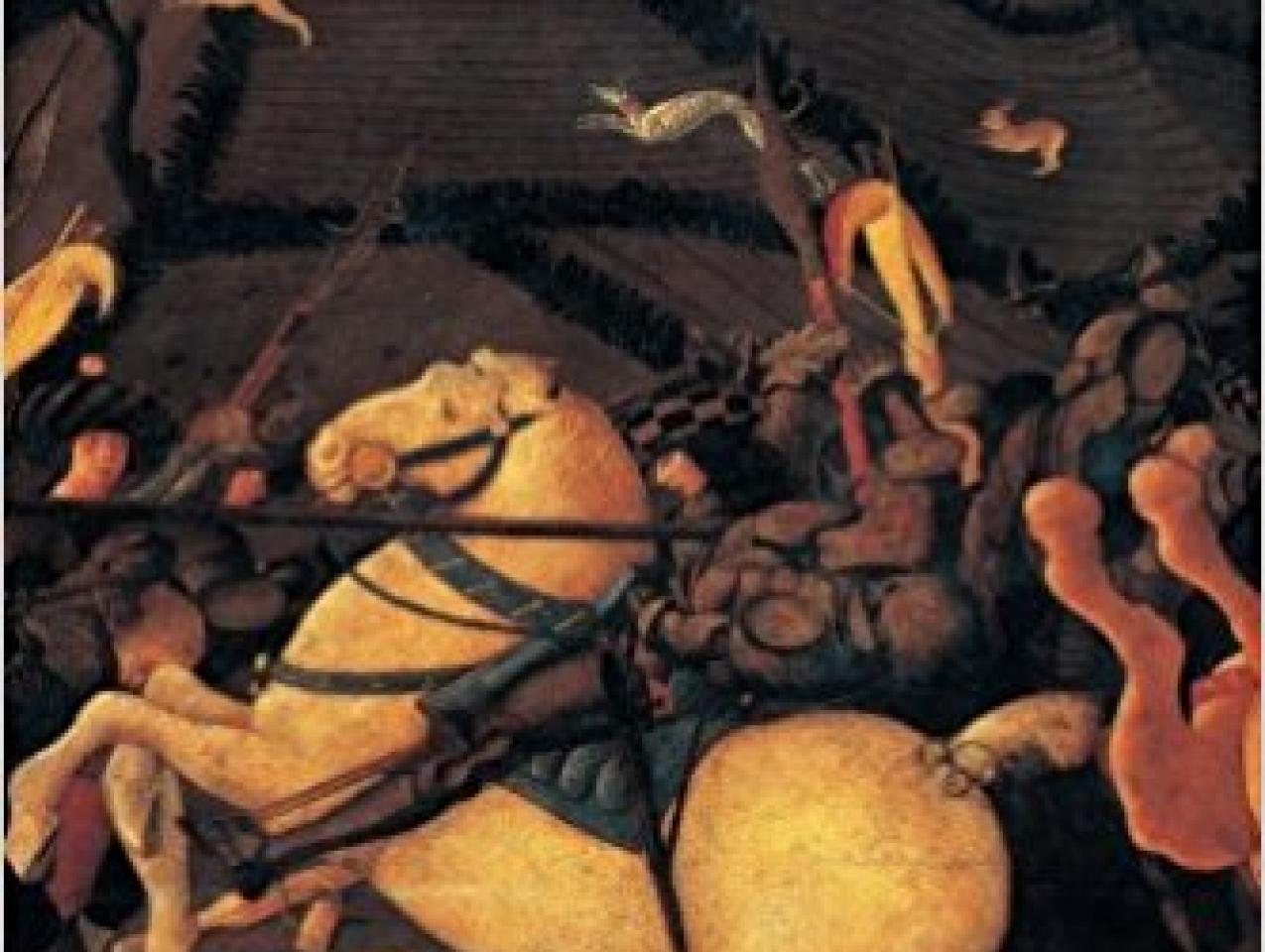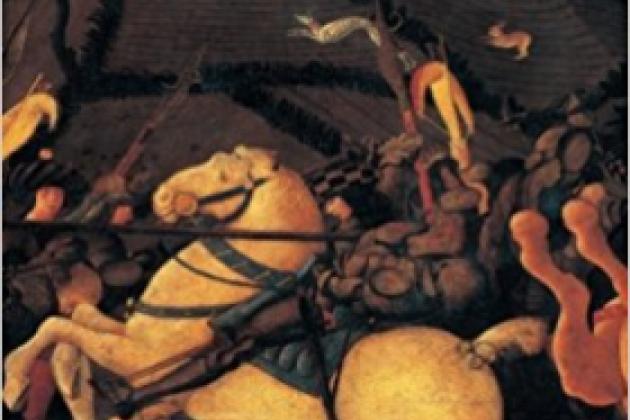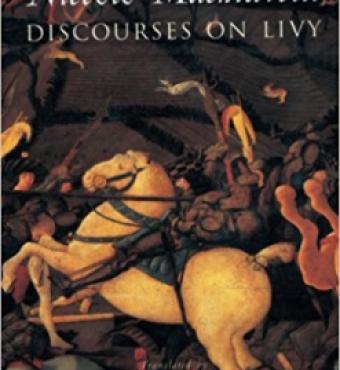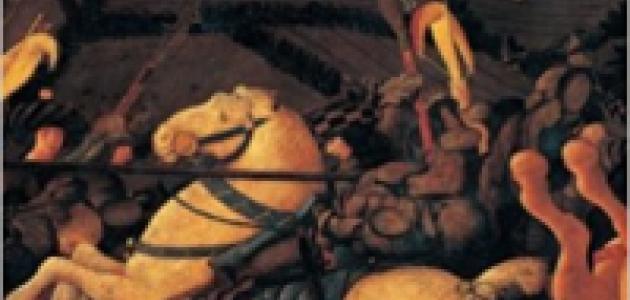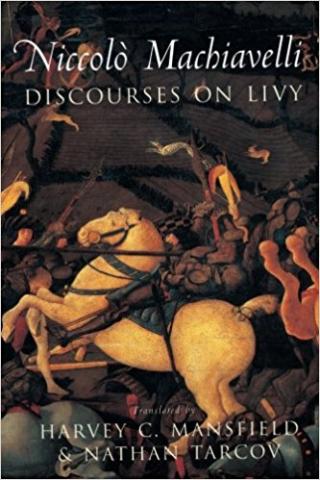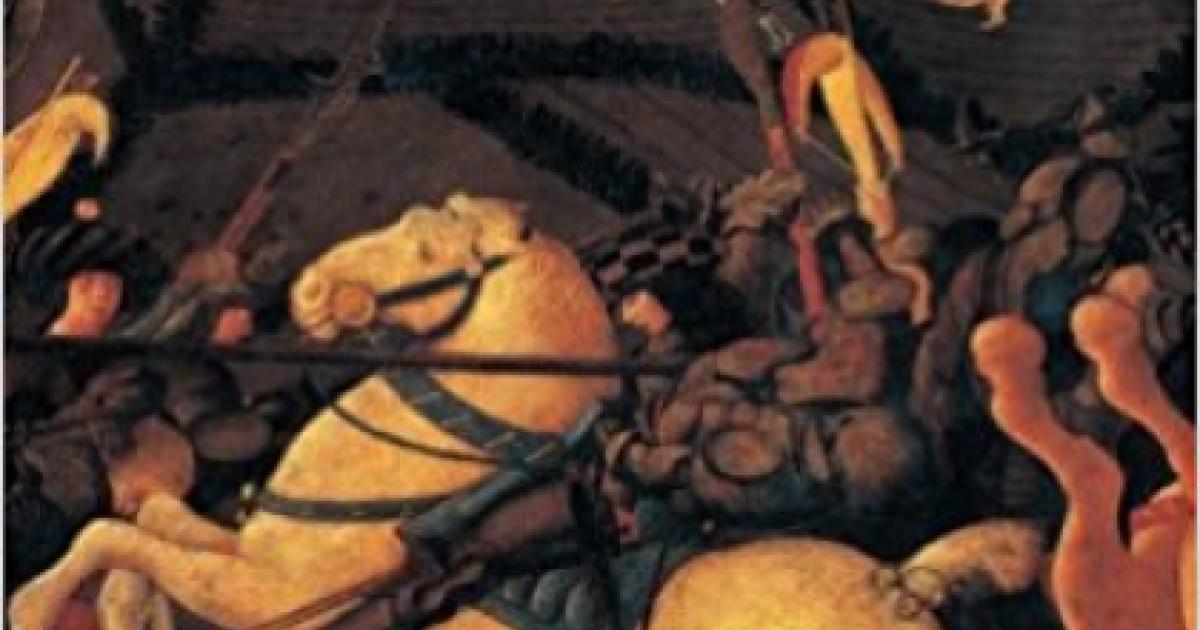Consisting of three books, of sixty, thirty-three, and forty-nine chapters respectively, the Discourses contains the bulk of Machiavelli’s teachings. Unlike The Prince, the chapters are written plainly, headlined in Italian rather than in Latin, and addressed to persons he deems sympathetic to those teachings. The subject is nothing less than what makes for successful states and individuals, as well as for success in war. It is covered on high, low, and intermediate levels of specificity. The format is a series of observations apparently chosen almost at random.
The book’s relationship to Roman history—and indeed to the events of Machiavelli’s own time—is tangential. The Discourses is not an argument for the superiority of Roman ways over those of contemporary Europe, as may appear from Machiavelli’s praise for Rome’s religion and indictment of “the Roman Church,” i.e. of Christianity, for Europe’s political incoherence. Machiavelli had not turned against Christ to worship Apollo. Instead, he praises Roman religiosity insofar as it led to the worship of the city and to the observance of oaths, while noting that Roman officials destroyed the religion by abandoning “prudence” in their manipulation of it. He also praises Spain’s Catholic king for having used Christianity to solidify his grip on the country. In short, regardless of time and place, Machiavelli teaches his readers to view religion from a purely instrumental perspective.
Machiavelli uses Rome to make observations that are universally valid. He judges its institution of Dictatorship—for specified periods of time but without power to alter basic institutions—to have been something that all republics should consider healthy. By the same token, he deems the Roman Decemvirs to have been disastrous because they took upon themselves the power to change the constitution. But multiple examples are available to bolster a host of other points: Money does not make power. Rather, power attracts wealth and is able to compel it. Which is better, a spirited army or a wise leader of armies? The leader is more important, because leaders can create armies de novo as well as make the difference between using their power wisely or counterproductively.
None of the Discourses’ anecdotes strike the reader as relevant to modern circumstances more than those regarding internal security, which Machiavelli treats under the rubric of “fortresses.” Regardless of what precautions any regime takes, it cannot prevent either treason or, just as dangerous, such disaffection as renders the regime vulnerable to foreign powers. No civil libertarian, Machiavelli notes that the harder that a regime tries to crack down on dissent, the likelier it is to foster it. Real internal security comes only from a population that is strongly committed to the regime or, what is almost the same thing, strongly opposed to its enemies.







